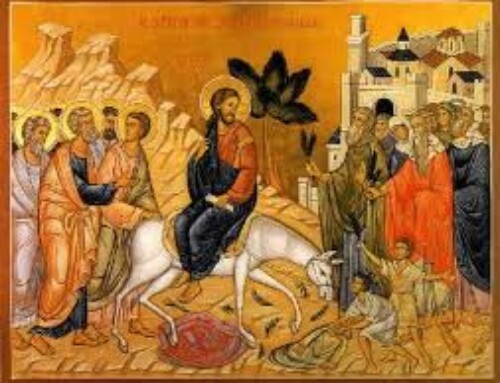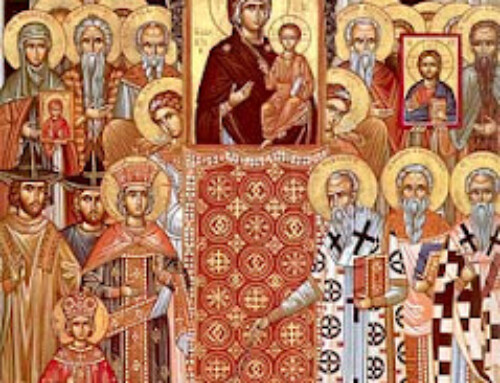From THE WORD MAGAZINE, March 1977, Page 15
LIFESTYLES X
Homily By Father James C. Meena
Forgiveness –
Doorway To Great Lent
“I’m sorry”… – “I Beg your pardon”… “Excuse me”. Expressions we use almost daily yet which we take so much for granted often have no real depth of meaning. Such expressions have a way of taking on airs of casualness much like “a noisy gong or a clanging cymbal”. But the Church gives us a day of emphasis before we begin the Great Fast to remind us of the importance of forgiveness as a prerequisite for our spiritual growth.
Cheese Fare, the doorway to Great Lent, is that day, for it is also Forgiveness Sunday. Great Lent has little meaning or purpose without it. The Gospel lesson that day states: “If you forgive men your Heavenly Father will forgive you” and thereby we are reminded of a basic truth of Christ’s love, that without forgiving there is no relationship with God and no really worthwhile relationship with each other. (Matt. 6:14)
I believe that there is no way for human beings to interact without sometimes giving offense or injury. The best way not to hurt each other is to have no personal relationships at all. Certainly, there is no relationship of love that does not have built into it the potential for giving and getting injury. It is for this reason that He teaches us the need for quickness in forgiving and in seeking to be forgiven. This is the highway He paves for our redemption, for this is an expression of love.
Taking forgiveness for granted, making it as shallow as those common terms we toss off so handily in everyday conversation, is risky for us because we then divorce ourselves from God’s mercy. In the “Our Father”, we pray: “forgive us as we forgive”. This is basic to our Christian lives.
During Lent and through the year, we can pray, fast, do all sorts of goody goody things, proclaim our love for God and man from the rooftops, but if we don’t forgive and seek forgiveness, it is all for nothing, all a vanity unless we pardon genuinely and honestly seek pardon, not only from God but from those we have offended.
Some people are hung up about apologizing and if you are that type, consider how the words, “I’m sorry”, sincerely spoken, can melt the heart of someone you love but whose affection for you has cooled because you were out of line. Consider the relationship of parents to children for example. If an offending child turns to parents and says, “Dad, Mom, I’m sorry!”, parental hearts so recently as hard as stone now turn to mush as love overwhelms anger and displaces it.
Forgiveness overrides the anger and frustrations that grip us, and this, we have come to understand, is how God relates to us as well — this vengeful, angry God, so vividly portrayed in the Old Testament. This God of wrath, this jealous God has been more accurately and repeatedly described by His Only Begotten Son as the God of mercy Who requires mercy and as a Father Who literally melts when his prodigal, sinning child turns to Him with sincere repentance and says, “forgive me”.
Through this doorway we enter into the Great Fast and having entered faithfully, having forgiven and sought forgiveness from all, we can get down to the other serious disciplines of this holy time, fasting, praying, ahnsgiving, communal worship and all with the knowledge that we have shed the greatest of our burdens, we have been forgiven and even more, we have rid ourselves of the weightiness of guilt and grudge-bearing.
We travel the journey through Lent as a model of how we should sojourn through life, knowing that just as at the end of the fast is the glorious Resurrection, so at the end of our human life is the joy of hope fulfilled in the promise of our own eternity with Christ. Every journey has a first step for both of these journeys, the first step for Christians is FORGIVENESS in all it’s facets.



